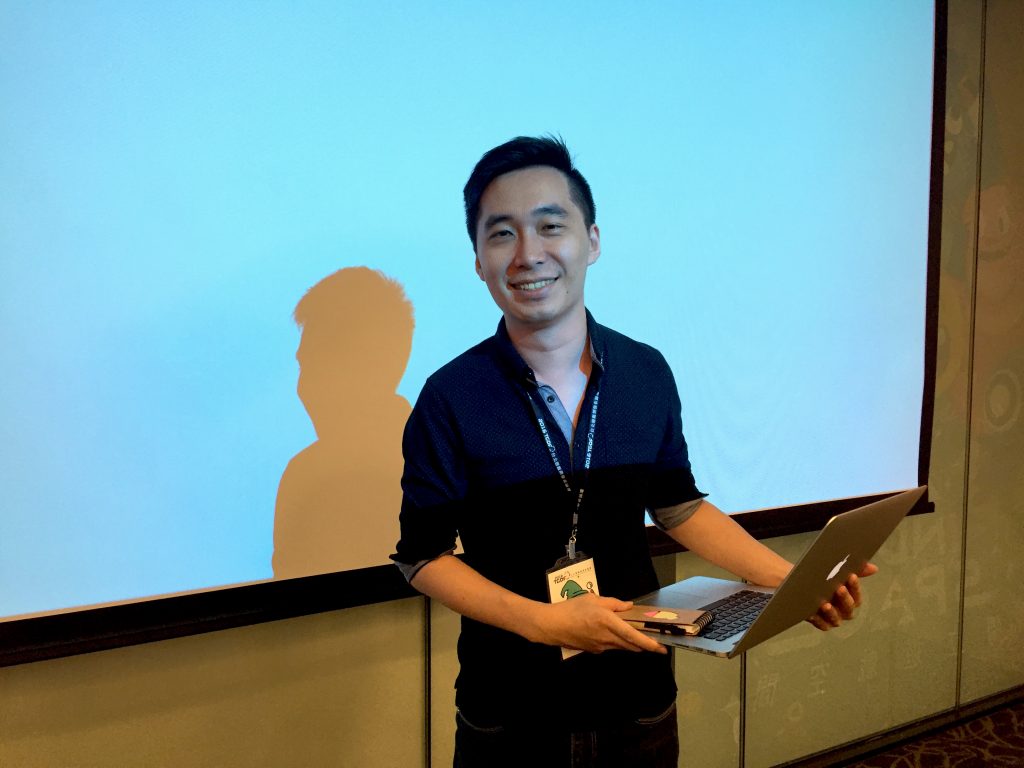Things not told in successful stories: The six-year dream of game development
Written by PJ H
Translated by 半月
Joe Jheng (Jheng Wei Ciao) has been making video games for 12 years. He joined a gaming studio in 2004. In 2010, he decided to begin a new journey and became an independent video game developer. Besides making new games, Jheng also spent time writing his blog Monkey Potion, sharing his experience in game development. In 2012, he published his first book Half Way Out: 1000 Days of Mobile Game Development (《半路叛逃:App 遊戲製作人的 1000 日告白》) that “touched developer’s soul.”
It has been six years since Jheng’s “new” life. Recently, he gave a lecture on “A six-year dream of game development,” sharing with the audience his work and feeling as an independent developer.

A star under spotlight or a stone falling silently onto the sea?
The environment for mobile game development has changed dramatically. Back in 2007, the term “App” was not familiar to most people. Users had doubts about Apple’s App store. Short afterwards, successful App examples popped into people’s eyes. Mobile game development gradually became a trend. More and more developers and users together brought about the era of Mobile Apps.
However, the situation changed rapidly. Jheng considered the environment for game development getting worse. There were rising stars, yes. Nonetheless, many projects did not work out well. Many “newly founded” mobile gaming departments in computer gaming companies are closed now.
From gaming exhibitions like Taipei Game Develpers Forum (TGDF), Taipei Game Show, and the Bahamut Market, we saw groups rose and fell. As technology advanced and the market changes, mobile game development became less and less trendy.
Professional v.s. Amateur game developer: It is not fun when becoming your job.
“Some people consider it immoral to have virtual shopping mall in independently developed online games. We are independent developers. Creating inspiring works is our calling, right?” Jheng did not agree. “Many game developers are looking to create a real hit. However, how long haven’t we heard about cases like this after angry bird? It is dangerous to put all the eggs in one basket.”
Independent developers should always ask themselves: Who are going to live on this project?. Then, one should consider to become a “professional” or “amateur” developer. Professional developers distinguish themselves by their vision on project development. The project has to be profitable enough to support team members and their family. Amateur developers may have other ways to earn a living. Sometimes, this frees the limitation on cost and allows a good project to grow. The decision on professional or amateur is crucial and has great influence on the next steps.
There are thing that can only be learned by doing
Jheng started from amateur game development and at one point, he decided to go professional. Since 2010, he has done projects like Potion Action, Bonnie’s Brunch, Bonnie’s Brunch 2 and Jade Ninja. “Try hard and do your best. It may not seem a good business, but you get other forms of reward if you really create something with all your heart. People would recognize your effort and maybe lend you a hand.”
“Succes is based on what has not been said in successful stories!” Jheng emphasized. If we take the example of Bonnie’s Brunch, the most profitable one. The price of the game was set to be 0.99 US dollar. Bonnie’s Brunch had dominated iOS, Android and (now disappeared) Windows Phone platforms and hit No. 1 on App download ranks. However, many people downloaded the game in “limited free download period”. At this point, Jheng encouraged the audience to read between the lines. It is important to think about “how” people in successful stories made it and what has not been said.”
After the success of Bonnie’s Brunch, Bonnie’s Brunch 2 and Jade Ninja were not as successful, but they did open new possibilities. “When producing Bonnie’s Brunch 2, we were thinking about using the same brand name with different business model. And as for Jade Ninja, we were involved in Casual Connect, GDC (Game Developers Conference) and competition held by the Ministey of Culture. Also, we have collaborate with TV series.” These experiences made Jheng realize that one can only learn the keys to success by trying.
Is this contradictory to what he is doing as a blogger, writer and lecturer? Jheng replied:
“Both success and failure are worth sharing. The process of trying is the most important thing. You may find a bug, a way to make things better. All these are worth sharing!”
Ask yourself the reason why you are here
Now, Jheng is working on his new project for 2 years. It was not easy. Colleagues left. Business partners quit. There were conflicts about money. He sometimes questioned himself: “Why me? Why can’t I focus on game development? Is independent development right way out?”
At this moment, Jheng thought about how he was influenced by the game Final Fantasy. He thought that games in the past offered a way out for people. Sometime video games could even be inspiring. But now, video games seems to be created for money. Jheng was dedicated to creating a game worth respecting. It was not easy. However, he thought he was doing what he wanted to. “This is what I am passionate about and what I am good at. It is not easy. But I am happy!”
The interesting about game development is: all roads lead to Rome.
中文版連結
Cover photo from PJ H











留言討論